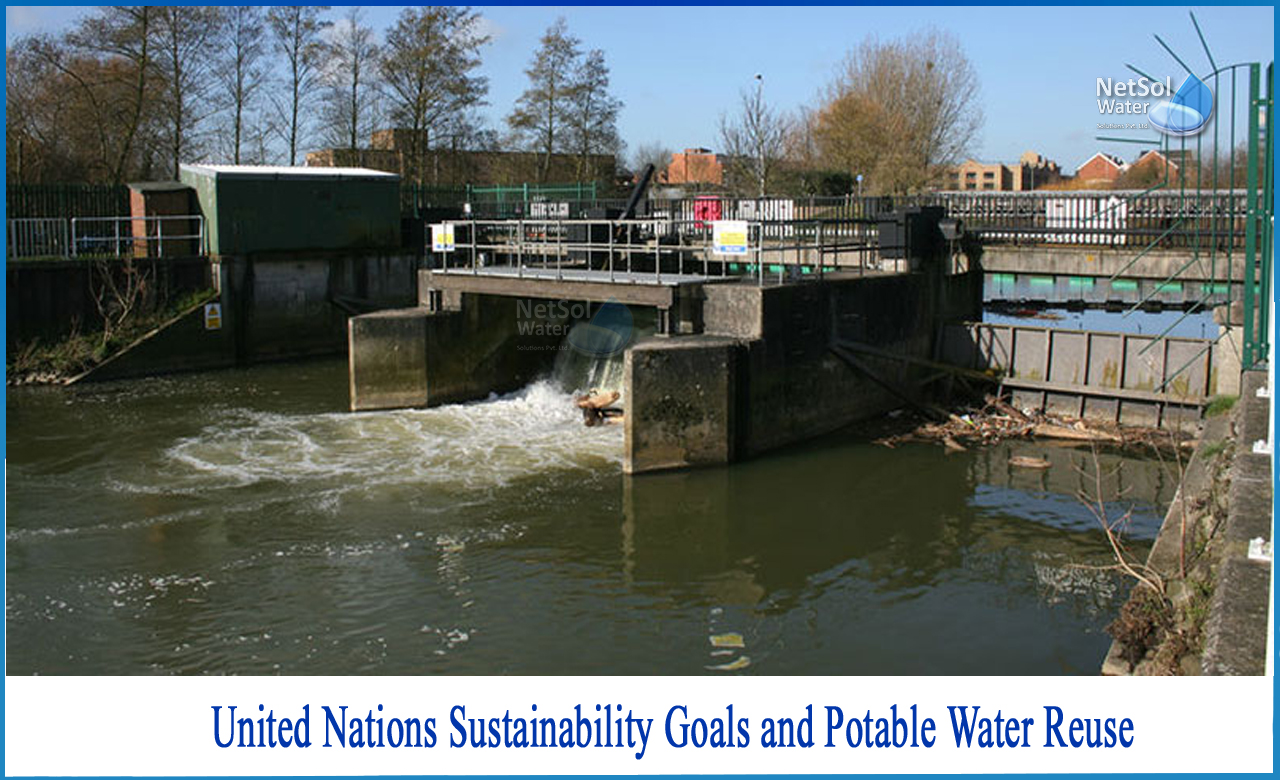What is UN Sustainability Goals and Potable Water Reuse?
The Sustainable Development Goals were established in 2012 at the United Nations Conference on Sustainable Development (SDGs).
The idea was to create a set of universal goals that would aid in combating the world's serious environmental, political, and economic crises. The aims have shaped the corporate climate for the better, as has been observed. There is a detrimental impact of climate change and rising inequality, as well as a positive impact of the goals and how they are assisting in the creation of greater possibilities for local communities.
Clean Drinking Water as Sustainable Development Goal
Despite significant progress in extending access to safe drinking water and sanitation, billions of people, primarily in rural regions, still lack these fundamental amenities.
One out of every three people lack access to safe drinking water, two out of every five people lack access to a basic hand-washing facility with soap and water, and over 673 million people still defecate in the open. The COVID-19 pandemic has highlighted the crucial role of sanitation, hygiene, and adequate access to clean water in disease prevention and control. Despite this, billions of people still lack access to safe drinking water due to a lack of funding.
Water Recycling – The only solution
Wastewater reuse or recycling can be used to provide water for a variety of purposes, including drinking. As a result, it precisely aligns with the United Nations' 2030 Sustainable Development Goal Number 6 (SDG-6) of universal access to water and sanitation.
However, when it comes to assuring public acceptability of reuse, high-quality wastewater treatment is a prerequisite. It is said that no government can provide clean water without also considering sanitation and wastewater management, regardless of the size of the human settlement, whether it is a megacity, a mid-size city, or a large or small village. If wastewater is not collected, processed, and disposed of appropriately for the intended uses, clean water is not and will never be achievable.
The SDGs have not been met in a timely manner!
Economic expansion, expanding populations, urbanization, and extreme weather from climate change are all stresses on freshwater supplies in the developing world. Furthermore, pollution is making universal access to water, both in terms of quantity and quality, more challenging.
Given the scarcity of natural water supplies, it's no surprise that water reuse is getting a second look. Although it is widely used for non-potable purposes, purifying wastewater for reuse as drinking water, or potable reuse, has proven difficult in some regions of the world.
However, as drinking water shortages become more common around the world, the social, environmental, and economic benefits of reuse, including potable reuse, have become increasingly important.
Direct and indirect potablereuse are the two types of potable reuse (DPR or IPR). IPR distributes highly treated wastewater effluent directly to taps, whereas DPR sends the water directly to aquifers or reservoirs.
Conclusion
Water reuse has expanded into a multiplicity of uses, with potable reuse constituting one of the last frontiers, starting with the historical legacy of land disposal and irrigation. Water reuse has evolved in modern times via observation, necessity, and opportunity, just as it did in the past.
The traditional concept and use of a single WWTP for all wastewater has become impractical as megacities have grown, restricting reuse possibilities!
Decentralization is an unavoidable necessity. Decentralization, on the other hand, will open up a plethora of new prospects for local water reuse. New scientific advancements will lead to a better knowledge of the significance of water and wastewater quality and their impact on human health. To reflect this improved biological and chemical understanding, new rules will be required. Cities must adopt the one water concept in order to effectively address future water resource management and water reuse concerns.
What can we offer?
Netsol Water is a significant water and wastewater treatment firm in India, offering WTP, WWTP, STP, ETP and RO Plant manufacture, among other services. The company creates equipment’s and is committed to providing practical solutions that help businesses flourish.
Netsol Water is Greater Noida-based leading water & wastewater treatment plant manufacturer. We are industry's most demanding company based on client review and work quality. We are known as best commercial RO plant manufacturers, industrial RO plant manufacturer, sewage treatment plant manufacturer, Water Softener Plant Manufacturers and effluent treatment plant manufacturers. Apart from this 24x7 customer support is our USP. Call on +91-9650608473, or write us at enquiry@netsolwater.com for any support, inquiry or product-purchase related query.



